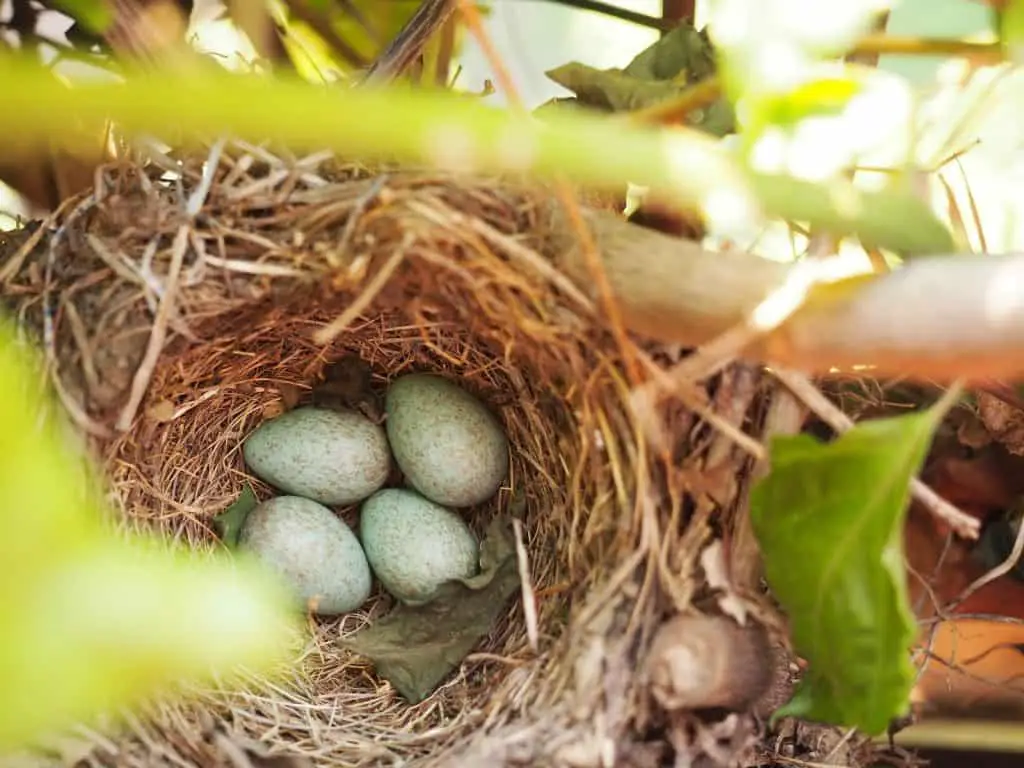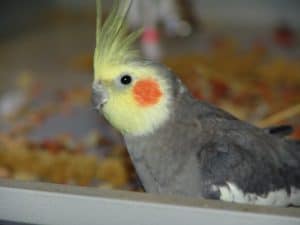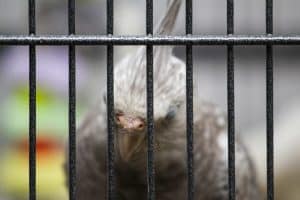My cockatiel laid an egg and this is really exciting for us cockatiel parents. This is an exciting time, but it can also be a bit nerve-wracking. After all, you want to make sure that you do everything right so that your pet birds and her chicks are healthy and happy.
Are you a cockatiel parent whose cockatiel has just laid an egg?
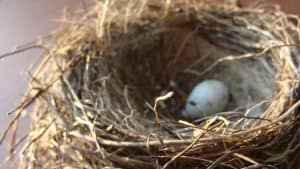
My Cockatiel Laid an Egg! What Should I Do?
Here are a few things to keep in mind if your cockatiel has laid an egg:
1. Don’t remove the egg unless it is cracked or damaged. If the egg is healthy, leaving it in the nest will encourage your cockatiel to continue laying eggs.
2. If you do need to remove the egg, use a soft cloth or your finger to gently roll it out of the nest.
3. Keep the egg in a warm, humid environment until you are ready to incubate it. A good way to do this is to put the egg in a container with a damp paper towel.
4. Once you have decided to incubate the egg, there are a few different ways you can do it. One option is to use a commercial egg incubator, which can be purchased online or at a pet store. Another option is to incubate the egg in a homemade incubator using a Styrofoam cooler and a heat lamp.
5. Incubating the egg takes about 21 days. During this time, it is important to keep the egg at a consistent temperature and humidity level.
6. Once the chick hatches, you will need to provide it with food and water. A good option for food is a commercially available cockatiel starter kit, which can be found at a pet store.
By following these steps, you can be sure that you are giving your cockatiel and her chicks the best possible chance for a healthy and happy life.
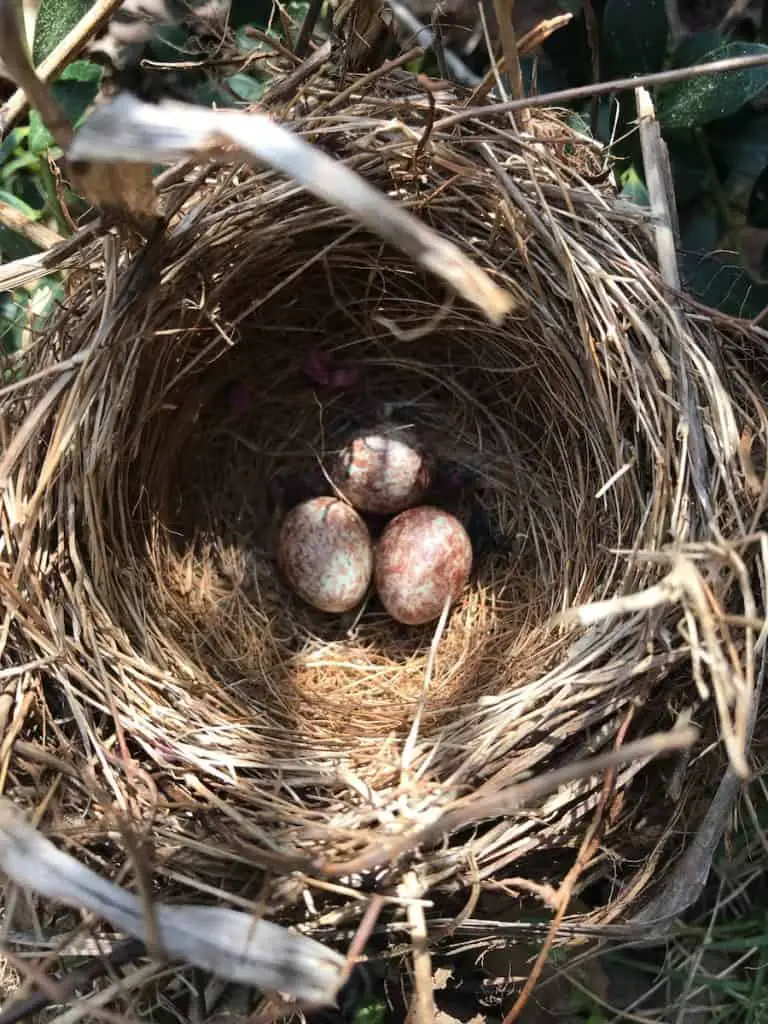
Possible Health Complications Associated When My Cockatiel Laid an Egg
Although egg laying is a natural part of a cockatiel’s life cycle, there are some health complications that can occur if a bird lays too many eggs or if it does not have access to proper nutrition.
Some of the possible health complications associated with egg laying include:
1. Nutritional deficiencies: A bird that lays too many eggs or chronic egg laying can become deficient in calcium, phosphorus, and other essential nutrients. This can lead to bone problems and other health issues.
2. Fatty liver disease: A bird that lays too many eggs can develop a condition known as fatty liver disease, which can be fatal.
3. Egg binding: If a bird does not have access to proper nutrition, it can become egg bound, meaning that the egg becomes stuck inside of the bird’s body. This can be a very serious condition and can often result in death.
4. Vent prolapse: Vent prolapse is a condition where the tissues surrounding the bird’s vent (or anus) become weak and collapse. This can be a very serious condition and can often result in death.
5. Respiratory problems: A bird that lays too many eggs can develop respiratory problems, which can be fatal.
If you think that your cockatiel may be experiencing any of these health complications, it is important to take her to the vet as soon as possible. Early diagnosis and treatment is often key to a successful recovery.
Taking care of a cockatiel that has laid an egg can be a bit of a challenge, but it is definitely doable with some patience and attention. If you think that your cockatiel may be about to lay an egg, or if she has already laid one, make sure to take the necessary steps to care for her and the egg properly. With a little bit of effort, you can successfully raise a healthy cockatiel chick even if it is not born under traditional circumstances.
My Cockatiel Laid an Egg Without a Mate: Is It Possible?
It’s not uncommon for female cockatiel to lay eggs without a mate. This can happen for a variety of reasons, including:
1. The cockatiel is too young to know any better.
2. The cockatiel is living in an all-female flock and has never been exposed to a male.
3. The cockatiel is living in a mixed-sex flock but has never been paired up with a mate. It will be good to separate your cockatiels to reduce the likelihood of excessive egg laying.
4. The cockatiel has lost its mate and is seeking to replace him or her.
5. The cockatiel is simply feeling frisky and wants to lay an egg!
Whatever the reason, if your cockatiel lays an egg without a mate, it is still possible to incubate and raise the chick. You can do this by finding another cockatiel to pair up with your bird (if you have a mixed-sex flock) or by using a commercial egg incubator.
With a little bit of care and attention, you can successfully raise a cockatiel chick even if it is not born into traditional circumstances.
My Cockatiel Laid an Egg: How to Care for Cockatiel Eggs and Chicks
Once your cockatiel has laid an egg, it is important to take some time to learn about how to care for it properly. This includes everything from keeping the egg warm to feeding the chick once it hatches.
Here are some tips for caring for cockatiel eggs and chicks:
1. Keep the egg in a warm, humid environment until you are ready to incubate it. A good way to do this is to put the egg in a container with a damp paper towel.
2. Incubate the egg in a commercial egg incubator or a homemade incubator made from a Styrofoam cooler and a heat lamp.
3. Keep the egg at a consistent temperature and humidity level during the 21-day incubation period.
4. Once the chick hatches, provide it with food and water. A good option for food is a commercially available cockatiel starter kit.
5. Keep the chick warm and protected from drafts until it is old enough to fledge, or leave the nest box.
- Birdies' amusement park This bird cage comes with two parrot bungee rope, and a ladder that is made of metal wire and polyester, strong enough to withstand the bites from your pets. This bungee can develop birds' coordination and balance skills. This parrot cage can be both a sweet home and a playground for your lovely birds.
- Safe and secure Each door has arc-shaped wires to prevent birds from opening the door; A fully painted cage with a smooth surface, 4 polished wooden perches and 4 eco-friendly feeders offer your lovely birds a safe and healthy environment; 2 buckles to secure the bottom tray to the parakeet cage.
- Wide applicabilityThis high-quality parrot cage is suitable for both home and outdoor use. Large space, simple and thoughtful designs make it a perfect choice for pet stores and pet hospitals, also can be used for decoration in flower shops. Ideal for cockatiels, parakeets conures, mini macaws, small cockatoos, African Greys, & and Amazon parrots
- Easy Cleaning The birdcage with the waterproof finished metal cage and the bottom slide-out tray, cleaning the cage would be a breeze for pet parents. The fence at the bottom prevents birds from walking in its excrement.
- After-Sale ServiceIf you have any problem with the product or meet any question during the usage, please feel free to contact our customer service, we promise we will provide you the most professional technical support and best solution.
How to Incubate Cockatiel Eggs Without an Incubator?
To incubate cockatiel eggs without an incubator, you can simulate a natural environment for the cockatiel laying eggs. This involves creating a safe and comfortable nesting area for the female cockatiel to lay her eggs. Keep in mind that female cockatiels can lay unfertilized eggs even without the presence of a male cockatiel, and egg yolk peritonitis could be a potential health risk for these female birds.
Here are the steps to help encourage a female cockatiel to incubate her eggs naturally:
1. Provide a nesting area: If the female cockatiel has already laid eggs on the cage floor, it would be best to provide a soft, warm, and comfortable nesting material such as shredded paper or feathers. Place this material in a nest box or a corner of the cage to encourage the bird to move her eggs there.
2. Encourage the male cockatiel to participate: If there is a male cockatiel in the same cage, he may help incubate the eggs, as male cockatiels are known to be involved in incubation. Therefore, it is important not to separate the male from the female during the incubation period.
3. Maintain temperature and humidity: Ensure that the room temperature is maintained between 70-75°F (21-24°C) with a relative humidity of 60-65%. If the air is dry, a shallow water dish can be placed near the cage to increase humidity.
4. Supplement calcium: Provide a calcium supplement for the female cockatiel to ensure she remains in good health while laying eggs. It can be added to their diet or in the form of a cuttlefish bone placed in their cage.
5. Monitor the situation: Keep a close eye on the female to ensure she is spending time sitting on the eggs, especially during the first four days following the start of incubation. If she is not sitting on the eggs consistently, you may need to explore other options, such as an incubator.
6. Limit egg-laying: In cases where the female cockatiel continues to lay more eggs, it could become detrimental to her health. You can try to stop her from laying eggs by providing fake eggs in her cage. Other methods include adjusting the lighting in the room to mimic shorter days, changing the cage location, or decreasing the amount of food provided.
By following these steps, you may be able to successfully incubate cockatiel eggs without the use of an incubator, allowing female cockatiels to lay and incubate their eggs naturally. However, always be prepared to explore professional solutions if needed to ensure the health of your birds and the development of the eggs.
My Cockatiel Laid an Egg- Bottom Line
If your cockatiel has laid an egg, there are a few things you need to do in order to take care of it properly. These include keeping the egg warm, incubating it, and feeding the chick once it hatches. With a little bit of effort, you can successfully raise a healthy cockatiel chick even if it is not born under traditional circumstances. Also, make sure to avoid causing stress to your pet birds as this can discourage egg laying.
For more insights and tips on cockatiel care, be sure to explore our other detailed articles. Learn how to spot and manage stress in your feathered friend by reading How to Recognize and Treat Cockatiel Anxiety. Enhance your cockatiel’s daily activities with engaging and beneficial ideas from Incorporating Foraging Activities into Your Cockatiel’s Routine. Discover the best greenery to adorn your cockatiel’s living space in The Best Plants for Cockatiel Cages. Curious about dietary options? Check out Can Cockatiels Eat Bean Sprouts? for a thorough analysis. Finally, for advice on safe and suitable cage lining materials, visit Can Cockatiels Eat Newspaper?. Each of these resources will provide you with valuable knowledge to ensure your cockatiel’s health and happiness.
